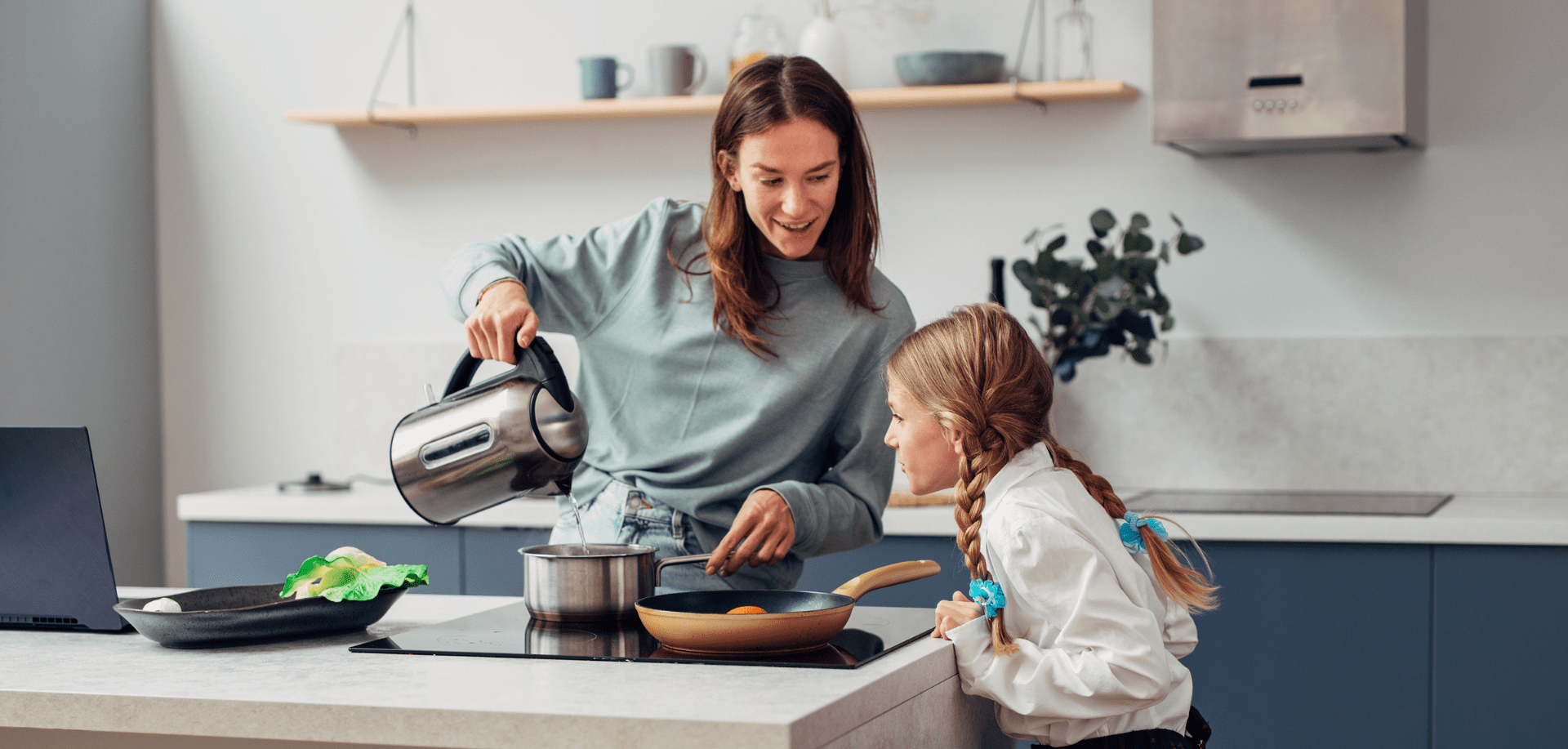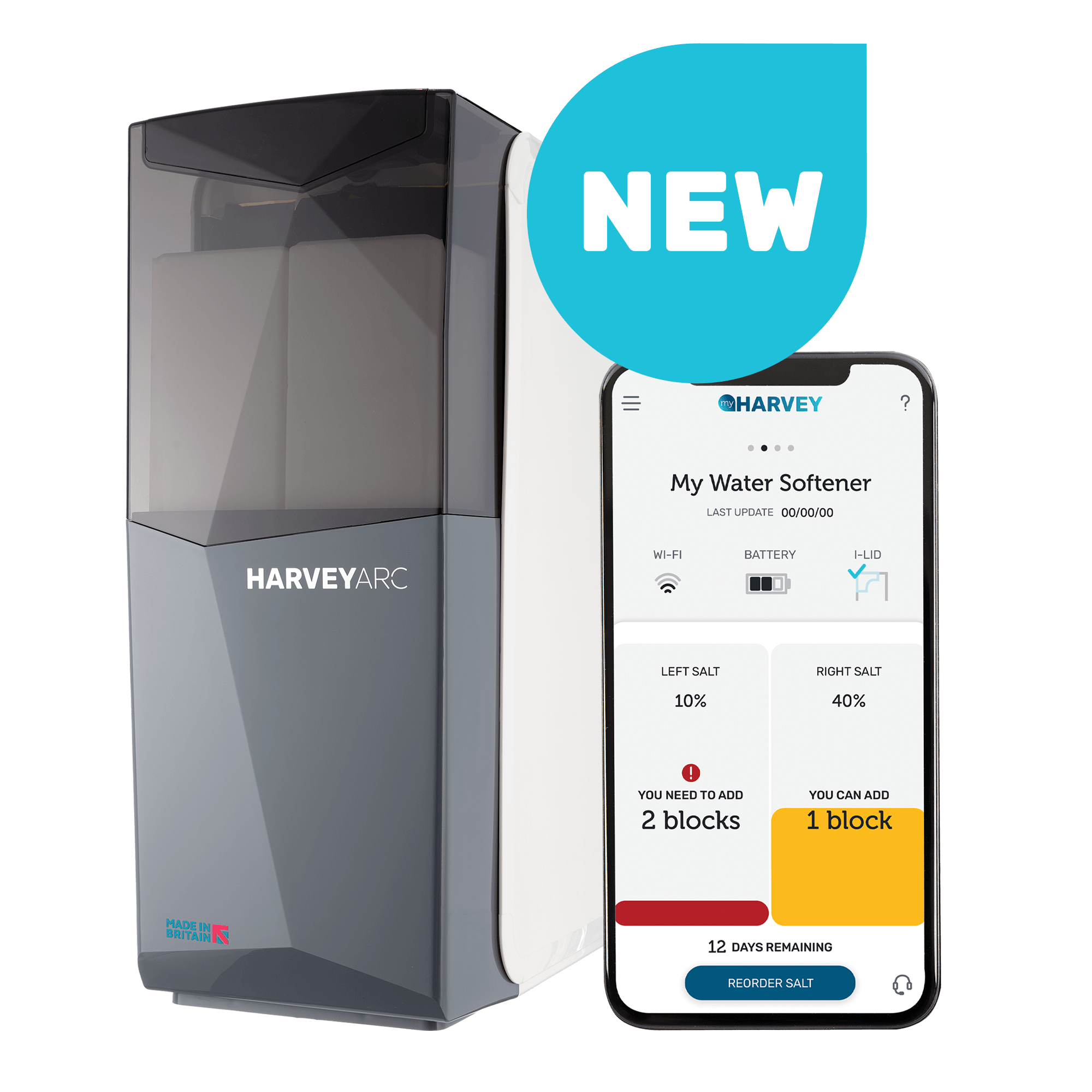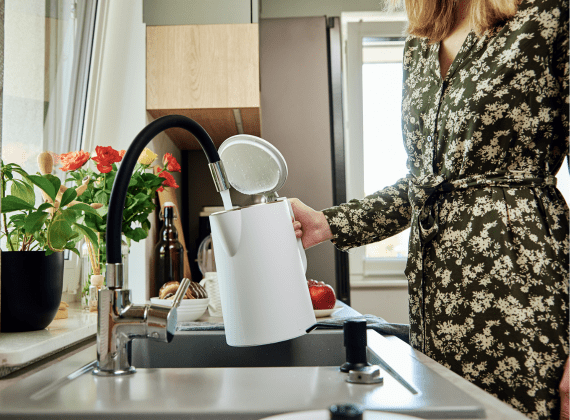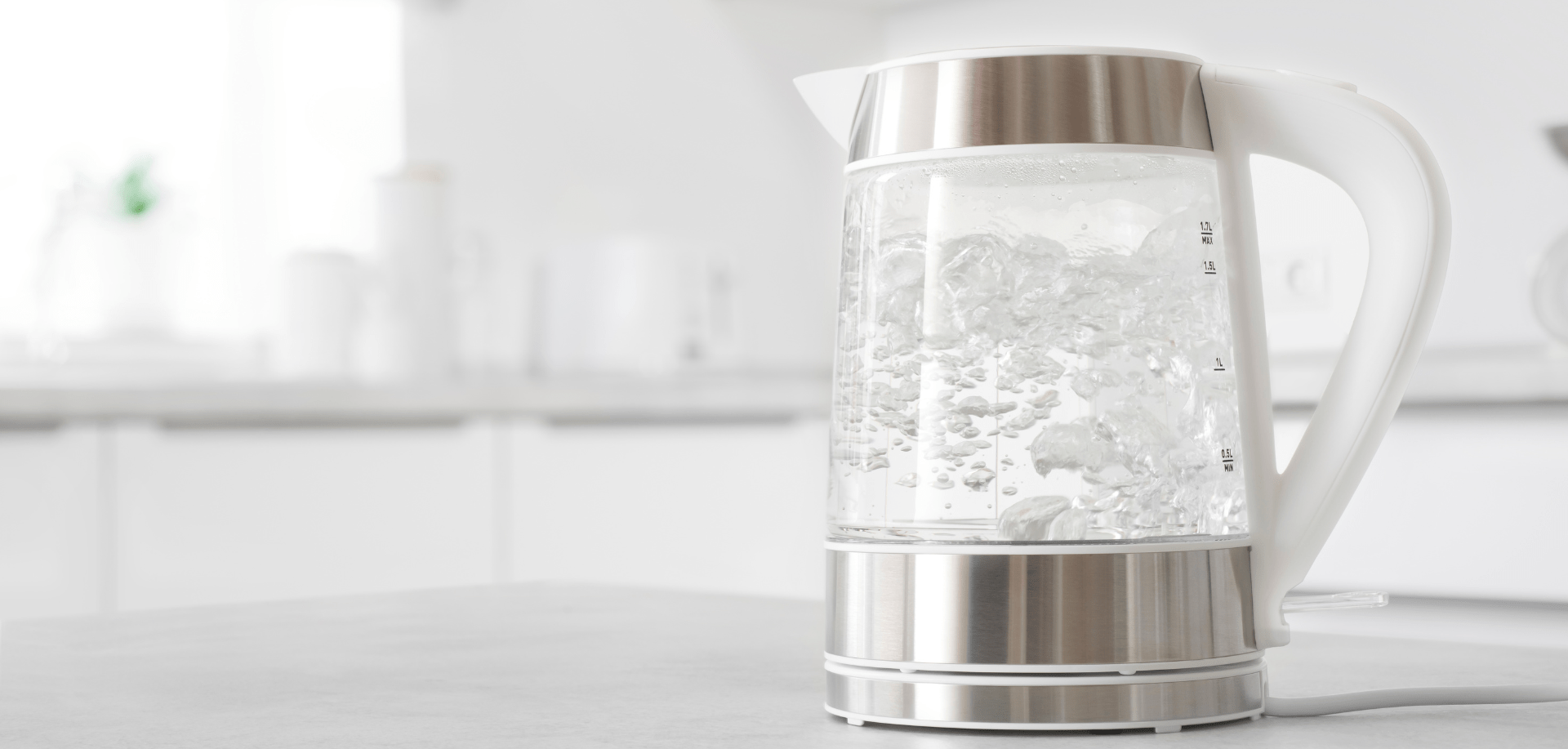
How to Remove Limescale from your Kettle
Stop to play little chemist and learn how to clean limescale from your kettle. Limescale free water directly from the tap with a Culligan Harvey water softener.

Stop to play little chemist and learn how to clean limescale from your kettle. Limescale free water directly from the tap with a Culligan Harvey water softener.

Our UK-made water softener is ultra-reliable, eco-friendly, and compact. Designed to fit under the kitchen sink, the advanced twin cylinder design requires no programming or maintenance.
Do you need a water softener?
If it’s 100ppm or above, you have hard water. A water softener can help you avoid limescale buildup, saving time and money.
* PPM stands for parts per million and indicates the concentration of dissolved limescale minerals like calcium and magnesium in water.


Limescale is caused by a build-up of calcium and magnesium minerals in hard water. This hard water is formed when rainwater filters through rocks like chalk and limescale, picking up hard minerals along the way. Areas which have hard water then boil this in their kettle, where it can then cause issues with both the kettle itself and the taste of water.

Limescale is the white, chalky residue that accumulates in kettles or coffee machines, and it’s particularly visible on stainless steel. It’s a common problem in hard water areas, where the higher concentration of magnesium and calcium leads to limescale.
Removing it needn’t be a huge chore, though it does need to be done frequently to keep your kettle in top condition. Here are our tips on how to clean limescale from a kettle, and how to prevent it:
Any mild acid should do the trick

Both of these options clean the existing limescale, but it doesn’t stop it from coming back. The best cure is prevention, so investing in a water softener means that you remove limescale from your home completely, and you’ll not get new limescale built up. As well as the visual benefits, it’s also better for the pipework and appliances, in your home, and you can benefit from a range of other health, home and money benefits too
With or without a water softener, cleaning your water is still key to maintaining a healthy kettle. To clean your kettle, we recommend using household items rather than shop-bought alternatives.
The whole process of cleaning kettles doesn’t take long to do, and uses either lemon or vinegar to clean and remove excess limescale from your kettle:
Doing this for a second time will act as a de-scaler, getting rid of any traces which could spoil your next cup of tea!
Some people also use baking soda to get rid of limescale, using the same method as above.
Another top tip is to make sure you don’t leave any water in your kettle once you’ve finished using it (standing water encourages a build-up of limescale).
The cleaning process should be repeated every month or so, depending on how often you use your kettle. If you have soft water (water which contains low concentrations of calcium and magnesium), you do not have to worry about descaling at all. Softened water means no chalky build-up of limescale, therefore helping to extend the life of your kettle and other kitchen appliances significantly.
Reducing the amount of limescale in your home is one major benefit of installing a water softener. 85% of our customers said that their limescale problems improved with a water softener in their home.
If you have hard water in your home, the build-up of limescale could shorten the life of your household appliances. Water softeners remove minerals from your water supply and drastically reduce the amount of limescale in your home.
High-quantity of limescale in your water can increase the levels of tea scum, altering flavours and healthiness of what you are drinking. HarveyArc is the solution.




Limescale comes from the high concentration of calcium found in the hard water we drink, so it will not cause you harm if you consume some from your kettle or coffee maker.
Kidney stones occur when there is a build-up of a substance in the body, such as calcium, ammonia, or cystine. However, there is no research which shows that drinking hard water increases your risk of developing kidney stones. In fact, you’re more likely to develop them if you’re not drinking enough water, so it’s worth keeping your kettle in top condition and brewing up!
Learn how to improve your water in only 60 minutes
Request your free personalised quote today!